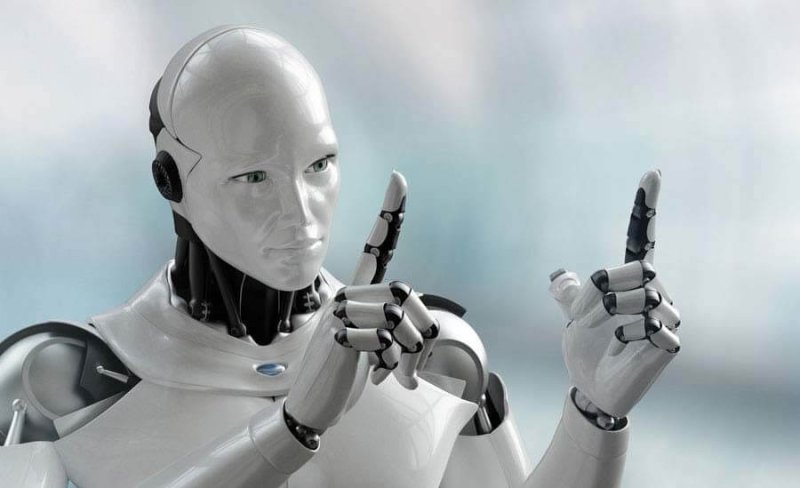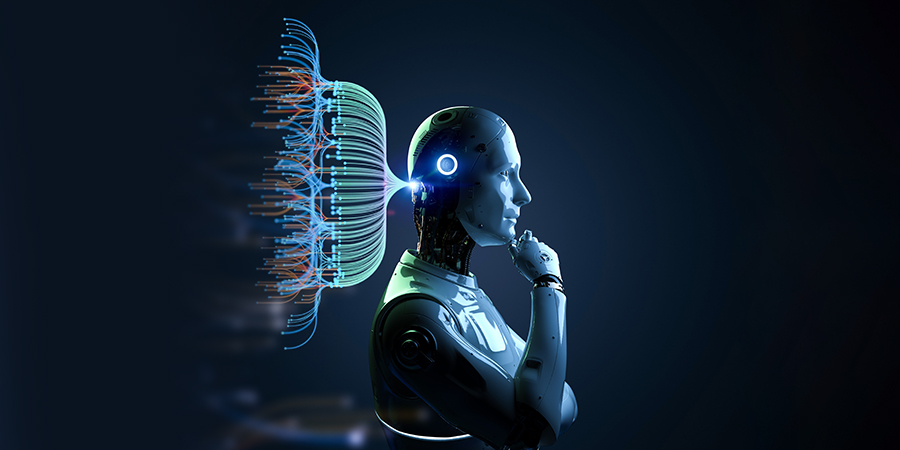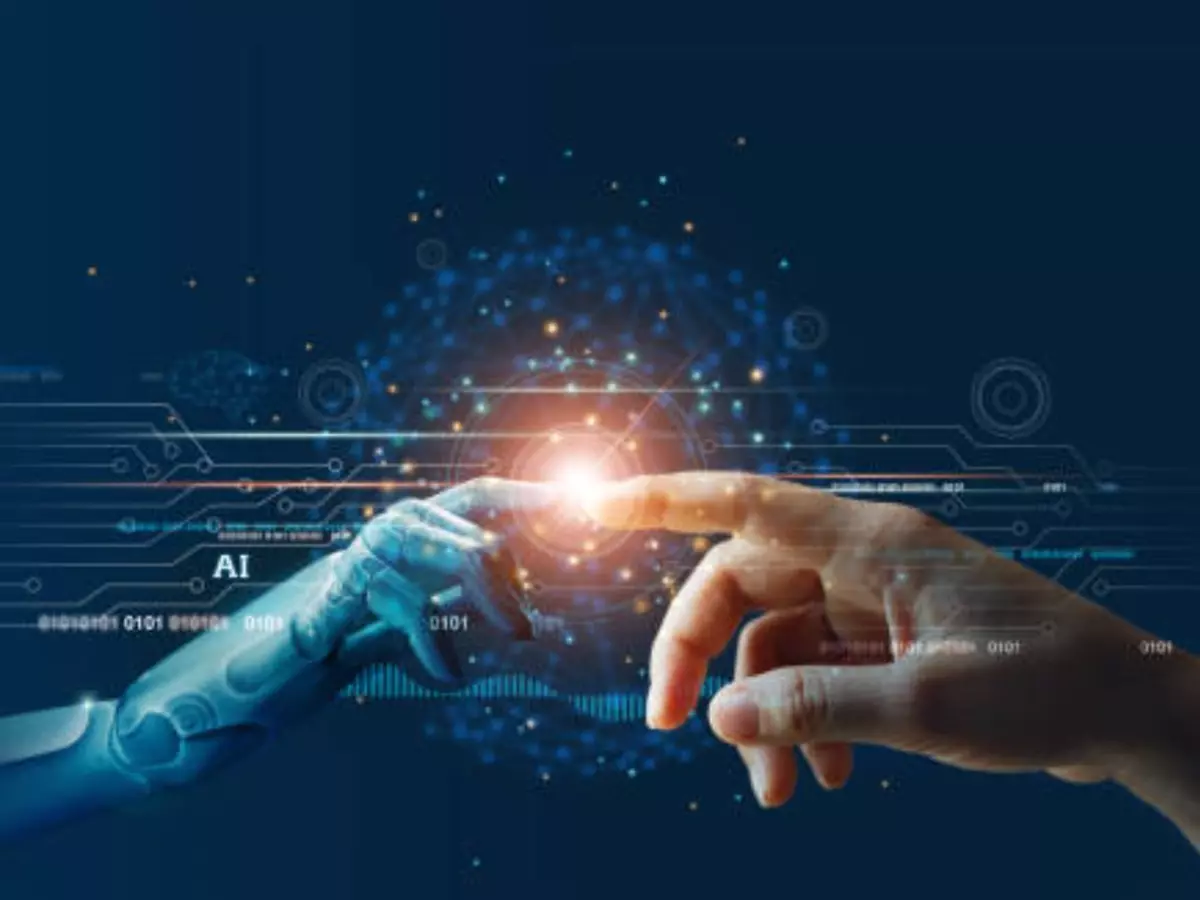Smarter AI, Thanks To Smarter Trainers; How Human Expertise Is Accelerating The Rise Of Super Intelligent Machines
AI is evolving rapidly, and much of its advancement is due to the efforts of human trainers. As AI models like OpenAI’s ChatGPT and Cohere become more sophisticated, companies are increasingly relying on specialized experts to refine and guide their development. With AI set to outpace human intelligence in the coming years, industry leaders like Sam Altman predict that we are on the verge of a new era — the "Intelligence Age" — which promises both transformative opportunities and significant challenges.

OpenAI CEO Sam Altman suggests that artificial intelligence could surpass human intelligence sooner than many anticipate.
In a blog post on his personal site, Altman introduced the concept of the “Intelligence Age,” speculating that superintelligence might be achieved in “a few thousand days” — a timeframe that could range from just over five years to nearly 14.
Even though this prediction isn’t for immediate change, Altman remains confident that AI’s future will be transformative.
While the goal of generative AI is to match human intellectual capabilities, superintelligent AI aims to go beyond, potentially far outpacing the human brain’s capacity to analyze and solve problems.
However, this prospect brings both excitement and concern, especially regarding AI’s long-term potential.
Altman believes society is on the cusp of the Intelligence Age, which he expects to be one of the most revolutionary periods in human history. “The future is going to be so bright that no one can do it justice by trying to write about it now,” he wrote.
“A defining feature of the Intelligence Age will be massive prosperity. Astounding achievements, like solving climate change, building space colonies, and unlocking the secrets of physics, will eventually become common.” With vast intelligence and abundant energy, Altman argues, humanity will be able to accomplish extraordinary things.
However, he also acknowledged the risks, particularly regarding the labour market. Though some jobs may evolve slower than expected, he noted that many of today’s jobs might soon seem obsolete.
“Nobody is looking back at the past, wishing they were a lamplighter,” Altman remarked.

The Early Days of AI Training
In the early stages of AI development, vast teams of low-cost workers helped models like ChatGPT and Cohere learn basic distinctions, such as recognizing whether an image was of a car or a carrot.
Today, as AI models have grown more complex, the need for more advanced human trainers has skyrocketed. Now, AI companies are recruiting experts across fields, from historians to scientists, many with advanced degrees, to refine their models.
“A year ago, we could hire undergraduates to train AI in general ways,” explained Ivan Zhang, co-founder of Cohere. “Now, we have licensed physicians teaching models to navigate medical environments, and financial analysts or accountants offering their expertise.” Cohere, a major competitor to OpenAI, focuses on AI for business applications.
Inorder to scale its training, it collaborates with Invisible Tech, a startup that specializes in AI training and works with other giants like Microsoft and AI21.
Invisible Tech employs thousands of trainers globally, including PhDs and knowledge specialists, paying as much as $40 per hour depending on the worker’s location and expertise.
In specialized fields like quantum physics, rates can reach up to $200 per hour. Originally a workflow automation company, Invisible’s partnership with OpenAI began in 2022, ahead of ChatGPT’s public release.
OpenAI needed help addressing a problem- early versions of ChatGPT often produced incorrect or “hallucinated” answers. As a solution, Invisible provided reinforcement learning through human feedback.
“They needed an advanced AI training partner,” said Invisible founder Francis Pedraza.

Distinguishing Between Fact And Fiction
Generative AI creates new content by analyzing patterns from the data it’s trained on; however, it sometimes produces incorrect information, known as “hallucinations,” when it fails to differentiate between fact and fiction.
A notable example occurred in 2023, when a Google chatbot shared inaccurate details in a promotional video about which satellite first captured images of a planet outside our solar system.
AI companies recognize that these hallucinations can damage the reliability of generative AI (GenAI) for businesses, and are taking steps to minimize them.
One strategy involves using human trainers to teach AI models to better distinguish between fact and fiction.
Since partnering with OpenAI, Invisible has become a key AI training provider for most GenAI companies, including Cohere, AI21, and Microsoft, though Microsoft has not confirmed its partnership.
“These companies face training challenges where their number one cost is computing power, and the second is quality training,” explained Invisible founder Francis Pedraza.

How Does It Work?
OpenAI, which sparked much of the excitement around GenAI, has a specialized “Human Data Team” working closely with AI trainers to gather targeted data for training models like ChatGPT.
Researchers at OpenAI run various experiments aimed at improving the model’s writing or reducing hallucinations, often in collaboration with vendors like Invisible.
These vendors, such as Invisible, source trainers with specific expertise based on the AI company’s needs — from Swedish history to financial modeling — thereby offloading the burden of managing large teams of trainers.
Invisible hires workers with relevant qualifications to meet these demands. Pedraza highlighted that while OpenAI has exceptional computer scientists, they may not have expertise in specific areas like history or chemistry, which is why over 1,000 contract workers now support OpenAI’s needs.
Ivan Zhang of Cohere added that he has personally used Invisible’s trainers to teach their AI model how to retrieve relevant information from large datasets.
Competition
Scale AI, another key player in this space and valued at $14 billion, also offers AI training services, including providing data sets to companies like OpenAI.
Invisible has raised only $8 million in primary capital, with 70% ownership held by the team and 30% by investors, according to Pedraza despite being profitable since 2021.
Human trainers originally entered the AI space through data-labeling roles, which required less expertise and offered lower pay, often as little as $2 per hour in regions like Africa and Asia.
However, as AI companies release more advanced models, there is growing demand for specialized trainers across multiple languages. This is creating a lucrative niche for workers from various fields to become AI trainers without needing coding skills.
The demand for AI training services is fueling the growth of new companies offering similar services. “My inbox is inundated with firms popping up everywhere,” Zhang said. “I see this as a new space where companies hire humans to create data for AI labs like ours.”

What Could Be in the Future?
As AI continues to evolve, the future of human-AI collaboration looks both promising and complex.
The rapid advancement in AI’s capabilities could transform industries, economies, and even the way we live our daily lives. If Sam Altman’s prediction of superintelligence becomes a reality within the next decade or two, we could witness revolutionary changes in sectors like healthcare, education, and scientific research.
AI could assist in solving some of humanity’s most pressing problems—curing diseases, combating climate change, and even exploring the farthest reaches of space.
However, this leap toward superintelligence also raises important questions about the role of humans in a world dominated by AI.
Will human workers be able to keep pace with the evolving job market?
Will the need for specialized human trainers expand, creating a new class of AI mentors?
Or will AI itself eventually take over the task of training and refining other AI models, reducing the need for human intervention entirely?
Another major challenge will be ensuring that AI remains ethical, accurate, and trustworthy.
Hallucinations and misinformation, if not properly managed, could erode public trust in AI systems, making them more of a liability than an asset.
Hence, to mitigate these risks, human trainers with deep expertise will continue to play a crucial role in teaching AI models how to navigate complex real-world scenarios.
Moreover, as AI systems become more intelligent, regulatory frameworks will need to evolve in parallel.
Governments and global institutions will likely struggle with questions of control, ownership, and responsibility for AI-driven decisions. Will there be global guidelines to prevent misuse of superintelligent systems, or will it become a tool of geopolitical competition?

In the future, we may also see a blending of human and machine intelligence.
Brain-computer interfaces, like Elon Musk’s Neuralink, could merge human cognition with AI processing power, creating a new form of “enhanced intelligence” where humans and AI work together as a seamless unit.
This fusion could unlock even greater potential, pushing the boundaries of what both humans and machines are capable of achieving.
In the end, the rise of smarter AI will redefine the future, opening up opportunities we can’t yet fully comprehend while posing challenges we must be prepared to address.
Thus, as we march toward the Intelligence Age, the symbiotic relationship between human expertise and machine learning will be key to this new frontier.




